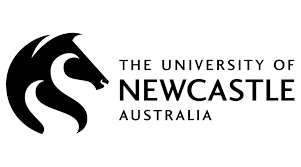University of Newcastle: Solving the nation’s challenges- $3million in ARC funding
The ARC Future Fellowships are awarded to outstanding mid-career researchers to help them undertake innovative research that will deliver benefits for Australia and reflect the University’s strong commitment to finding solutions for key industry challenges.
> $917,000 over four years for Dr Zamira Gibb from the School of Environmental and Life Sciences to improve the sustainability of Australian livestock production systems.
Australia’s cattle and equine industries are a critical part of our agriculture sector and contribute more than $22 billion per annum to the Australian economy. The sustainability of these high-value industries relies on safe and effective breeding programs that deliver healthy offspring.
Dr Gibb’s research will support the supply of low-methane genetics to cattle breeding regions in remote Northern Australian and help improve foal heath and offspring longevity. Her work will also address the environmental, ethical and economic issues that threaten the sustainability of these industries, which are the cornerstone of everyday life in many of our regional communities.
> $940,000 for Dr David Farrugia from the School of Humanities, Creative Industries and Social Sciences for his research on young workers and the future of service Employment.
Public inquiries into wage theft, youth and migrant exploitation, and labour hire practices have highlighted major issues for Australia’s younger workers. Dr Farrugia aims to understand how the social and political aspects of service employment are transforming – and how workers’ participation can support the future viability of the service economy.
His research will explore how young service workers negotiate their status, conditions and working relationships – and how service employment facilitates or limits their social and political participation. He anticipates outcomes will benefit policymakers, employers and worker representatives aiming to support this diverse labour force.
> $800,000 for Dr Hannah Schunker from the School of Information and Physical Sciences for her research solving a fundamental astrophysics problem to mitigate space weather.
Solar storms have been known to cause widespread power outages, and interfere with magnetic sensors in defence infrastructure. Given our society is increasingly reliant on technology, it’s never been more important to understand the Sun’s magnetic field and the impact it can have here on Earth.
Dr Schunker’s research aims to settle the debate about the mechanism driving magnetic activity on the surface of the Sun. By drawing on extensive, big-data analysis of solar observations, she will use the technique of helioseismology to understand the role of convective flows in the evolution of hundreds of magnetic regions.
Outcomes will help refine current models to explain how the Sun’s magnetic field emerges to the surface, resulting in a leap forward in solar dynamo theory. It will also help forecast space weather, which could minimise the billion-dollar economic impacts of geomagnetic storms.
Dr Hannah Schunker is also one of the University’s 2022 Women in Research Fellows.
The Discovery Early Career Researcher Award (DECRA) scheme allows researchers in the early stages of their career to develop and apply their research skills, on projects that benefit Australians.
> $393,903 to Dr Erin Campbell of Biomedical Sciences and Pharmacy from the for her research in deconstructing the brain circuits of reward-seeking.
Dr Campbell’s work will aim to deconstruct the brain circuits that shape reward-seeking behaviour in different environments. The anticipated significance of this project is to provide mechanistic insights into why we choose to seek rewards in safe, but not dangerous environments.
Expected outcomes include answering fundamental questions about how the environment shapes our behaviour by identifying projection cell subtypes important for reward-seeking, characterising their neuronal activity and precisely defining their molecular phenotype. The benefits of this project are expected to provide a new knowledge base for understanding decision-making in a constantly changing world.

